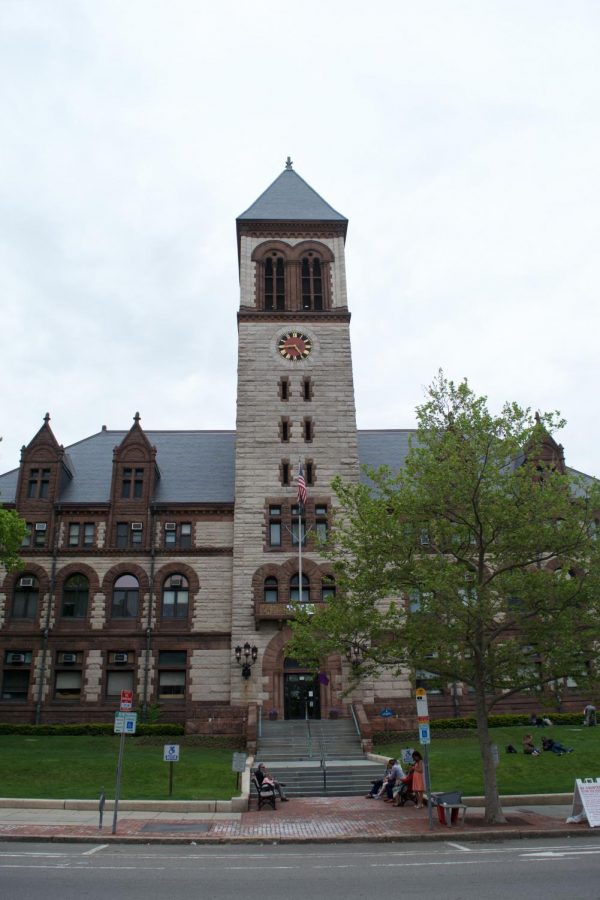Why Local Government Matters
Cambridge City Hall is located in Central Square.
October 30, 2017
Washington politics seem more present and all-consuming than ever before. With a president that demands constant news coverage and a country that is all too willing to lap it up, our attention has been locked on the federal government.
The scandal and action coming out of the White House and Capitol Hill has made it nearly impossible to escape it. Yet, this drama and excitement is also fundamentally misconstruing our idea of government.
When most people think of government, they think of Washington D.C., the presidency, and Congress. This represents the federal government, the largest and most powerful center of government that holds large influence over national affairs. There are, however, other levels of government.
Far from the noisy drama of the capital, local governments continue to function quietly. These are state and municipal governments, whose activities usually escape the notice of most everyday citizens, and they continue to function seemingly without much care from the public.
If I were to ask you who the president and vice president of the United States are, you would know the answer. However, if I were to ask for the name of our state governor, our city mayor, and their respective political party affiliations, you would most likely draw a blank.
In fact, according to a 2016 poll, about 40% of Massachusetts citizens can’t name their governor and less than 35% can correctly name the political party he belongs to. Similarly, more than half of Massachusetts citizens cannot name their city mayor, and almost 75% do not know what their city government does.
These results are, unfortunately, not that surprising. When the vast majority of political coverage from the media is about the federal government and the interested public is centered on the affairs of Washington, most of us forget what our own city government actually does for us.
In the city of Cambridge, the City Council handles a whole host of services that our daily lives revolve around. Building permits, immigration services, birth and death certificates, education management, recycling and street cleanup, affordable housing construction, disabilities aid, and much more falls under the purview of our city government.
In addition, state governments manage most government programs, promote the state economy, and provide basic security and health services to the people.
One might not realize it, but the life of a Cambridge citizen is hugely impacted by the everyday work of our state and, more importantly, the city government. As students, education policies, program funding, and extra-curricular projects that impact us are all determined by the Cambridge School Committee.
All the big actions might be taking place in Washington, but work is also being done right here.
On November 7th, Cambridge will hold municipal elections for the City Council and the School Committee. These elections will determine who sits on these important bodies, and, in turn, what policies will be carried out in the coming years. While we might not realize it, the new School Committee will have enormous influence over our remaining years as high school students.
In a city of 110,000 people, no City Council election in the last decade has garnered more than 25,000 votes, slightly more than a fourth of the eligible voting population. Traditionally, voter turnout in most American elections rarely exceeds half of the eligible population. This is, frankly, a wasted opportunity. With how much our lives are determined by the actions taken by our local governments, should we not look out for ourselves by ensuring we have a City Council and School Committee that are helping us?
Too often, the incredible powers and privileges granted to us by our great democracy are wasted. This November, I urge you all to strongly consider the importance of city government to your everyday life.
Don’t sit this election out and ignore the silent but profound ramifications it will have on your life. Use your vote, if you’re 18, and your voice to advocate for the future you want.
This piece also appears in our October print edition.









